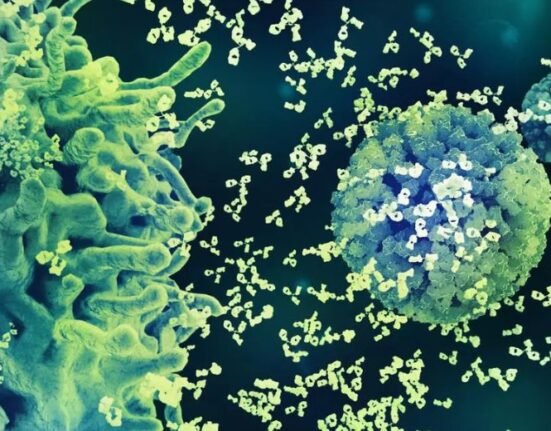HQ Team
June 2, 2025: Regeneron Pharmaceuticals, Inc. will pay China’s Hansoh Pharmaceuticals Group Company Limited $80 million upfront to acquire rights for a weight-loss drug candidate.
Regeneron signed a strategic in-licensing agreement with Hansoh to buy the exclusive clinical development and commercial rights outside of the Chinese Mainland, Hong Kong and Macau for a dual GLP-1/GIP receptor agonist in end-stage trials.
The therapeutic candidate, called HS-20094, has been tested in over 1,000 patients and is administered as a weekly subcutaneous injection.
It has demonstrated promising efficacy and safety clinical data, suggesting a potentially similar profile to the only FDA-approved GLP-1/GIP receptor agonist. An end-stage trial in obesity in China and a mid-stage trial in diabetes are ongoing.
Up to $1.93 billion
Potential payments of up to $1.93 billion will be paid to Hansoh at the end of development, regulatory and sales milestones.
“Future potential royalties for global net sales outside of the designated territories would be in the low double digits,” according to a Regeneron statement.
“Regeneron is committed to advancing better obesity treatments by enhancing the quality of weight loss,” said George Yancopoulos, M.D., Ph.D., co-Chair, President and Chief Scientific Officer of Regeneron.
“Despite the transformative impact of recent weight loss therapies, significant unmet needs remain, including the ability to sustain weight loss and maintain muscle mass over time.
“Securing access to a GLP-1/GIP receptor agonist will increase the versatility of our clinical programs for obesity and accelerate our mission to support quality, sustained weight loss and the associated long-term health benefits.”
In-licencing agreement
In an in-licensing agreement, a company acquires the rights to use a product, technology, or intellectual property from another company. This allows the licensee to develop, manufacture, and market the product, or to use the technology, without having to do it themselves.
“In-licensing a late-stage GLP1/GIP agonist will allow us to study combinations with Regeneron’s proprietary drugs and drug candidates to holistically address muscle loss and potentially other comorbidities of obesity, such as cardiovascular diseases, diabetes and liver conditions,” said Boaz Hirshberg, MD, Senior Vice President, Clinical Development, Internal Medicine at Regeneron.
“This is an exciting development in our obesity work at Regeneron, which also includes the muscle-sparing phase 2 study investigating the addition of trevogrumab, our GDF8 antibody, to semaglutide, with and without garetosmab, our anti-activin antibody,” he said.
Muscle loss
Obesity is a complex, multifaceted disease and a growing public health concern that affects more than a billion people worldwide.
Despite the revolutionary impact of GLP-1 receptor agonists (GLP-1RAs) on weight loss, the quality of this weight loss can be negatively impacted because these agents can cause profound muscle loss, according to Regeneron.
Moreover, a high percentage of patients cycle on and off treatment, and while off treatment, they can regain almost all of the weight lost, but mostly in the form of fat, leaving them with negatively altered body composition.








